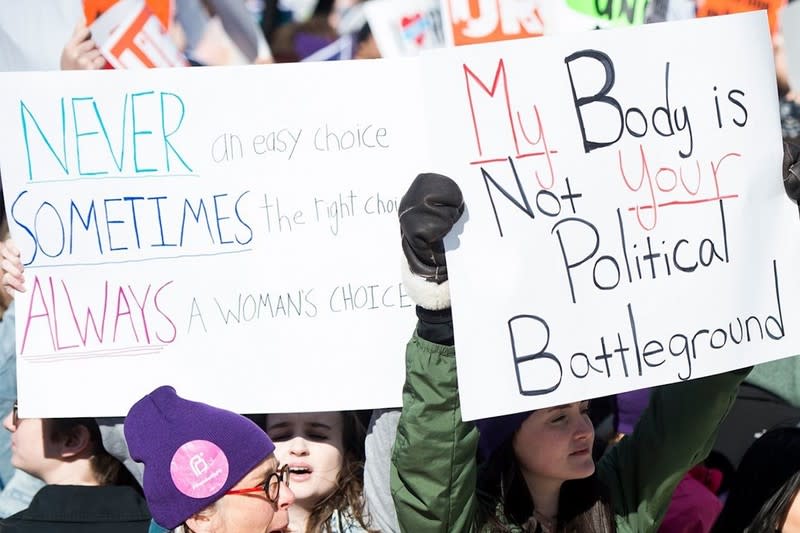What Does the Overturning of Roe v. Wade Mean for Birth Control, Plan B and IUDs?
The Supreme Court's decision to overturn Roe v. Wade has rightfully caused many emotions -- frustration, anger, fear and anxiety for women and society as a whole. As a result, many may be asking themselves: How does the ban of abortions affect contraception?
Fortunately, for now, birth control, Plan B and IUDs remain unaffected, meaning they are still legal and accessible in the United States. However, there has been reports of conservative lawmakers planning to ban contraception. "Anti-abortion lawmakers are turning their attention to the next target: birth control -- in particular, emergency contraception and intrauterine devices (IUDs)," read a report by The 19th.
At the time the report was written, it had been a few weeks since Justice Samuel Alito's draft had gotten leaked, which called out for the dismantling of abortion rights. Now that the ban of abortions has officially become legal in about half the U.S., it wouldn't be shocking if contraception becomes their next target to try and further dictate women's bodies.
On the bright side, there are two cases to keep in mind: Griswold v. Connecticut, which established that married couples had the right to use birth control, and Eisenstadt v. Baird, which then extended that protection to unmarried people.
In a concurring opinion, Justice Clarence Thomas noted that these cases "are not at issue" right now. However, he also wrote, "In future cases, we should reconsider all of this Court’s substantive due process precedents, including Griswold, Lawrence and Obergefell."
Stay tuned for more news on contraception and Roe v. Wade.



